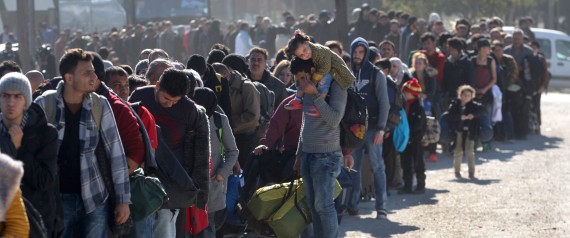
By Robert Fadel Lebanese Member of Parliament
Few will forget the tragic image of three-year-old Aylan Kurdi, who drowned as his family attempted to flee to Europe. His death came to symbolize the desperation gripping millions as they escape one of the worst humanitarian crises of this generation. As his image was displayed by media outlets around the world, it forced European leaders to re-examine their response to the deplorable situation. Yet, several emergency summits later, Europe continues to remain short sighted in its plan for tackling the problem, ineffective and ambivalent in its reaction. Europe will only prevent the issue from deteriorating further by working with countries like Lebanon, to implement solutions where the issue originates.
David Cameron has pledged that Britain will rehouse 20,000 Syrian refugees. Lebanon currently houses nearly 2 million refugees, whilst the total Lebanese population is 4.5 million. Imagine if the UK received 30 million refugees in the span of four years – almost four times the population of London. How would it cope? European countries are now working out their strategy to absorb the increasingly pressing influx of refugees; my home too faced that debate.
My people have opened their communities and their homes to Syrian families seeking refuge showing hospitality and a generosity without limit, sometimes at their own expense. I can proudly say that the Lebanese citizens, and mostly the most deprived, are the true heroes of this humanitarian battle, as they were during the Armenian tragedy a century ago.
Yet we have ran out of capacity to deal with the growing scope of the crisis, and despite all our goodwill, we can simply no longer deal with it unaided.
My constituency is in Tripoli, in northern Lebanon perilously close to the Syrian battlefield, and where the influx of refugees is most concentrated. Northern Lebanon and Tripoli are sheltering some of the largest numbers of displaced peoples, despite having some of the most deprived areas in the country. As a result, their part of the country is sinking further into poverty and disillusionment – favorable conditions for breeding extremism.
For the first time in decades, Lebanon now faces negative economic growth. Even during the civil war and decades of violence, Lebanon continued to have positive economic growth, which highlights just how dire the situation has become. Lebanon has worked too hard, for too long, to preserve the hard-won delicate sectarian balance and peace that currently exists within its borders. It cannot risk being destabilized further.
The global refugee crisis is a global challenge and responsibility, yet the international community has failed so far to act swiftly and decisively to help the countries who are hosting the greatest number of refugees. We urgently need greater support from the international community.
I believe one of the most cost-effective ways to tackle the refugee crisis, is to provide greater financial support to projects helping those in the region. For example, the amount secured for the World Bank food vouchers to feed 4 million refugees is still short $200 million. Hence one third of the program will be cut. In comparison, the UK has estimated that the cost to host 20,000 refugees will be between £220 to £500 million for the first year. In other words, the cost of helping 4 million refugees in neighboring countries is a small portion of dealing with them in Europe, and yet there remains a consistent and growing funding gap for the voucher scheme and numerous other projects similar to it.
Only through jobs, access to education, healthcare, an improved infrastructure, and other basic necessities can we avoid entering into an irreversible downward spiral with dangerous, far-reaching consequences.
But it is not just financial support that Lebanon requires. My country has been without either a President or a fully-functioning Parliament since 2014, and is today on the verge of political paralysis due to the combination of local and regional factors. Our foreign partners must help our political system get back on its feet, to overcome the current sclerosis that becomes more entrenched with every passing day. The failure to solve the garbage crisis is another example of the unprecedented institutional crisis. In this context, Lebanon risks a potential collapse of its institutions thus sending new waves of Syrian refugees to Europe looking for new shelter.
This has to change now. Solving Lebanon’s political deadlock is critical to the success of any European policy aimed at improving the situation of Syrian refugees. We must be able to rely on our international partners and in addition, I call out to my fellow Lebanese from around the world to mobilize all available resources, to make the voice of Lebanon heard. Our cries for survival must resonate in political circles everywhere.
Lebanon must survive. It is too important to fail. It remains a rare prize in a tumultuous region, a country where men and women of different faiths co-exist and thrive in a finely-balanced democracy, a beacon of liberal values and irrepressible spirit.
I would like to end this appeal on a positive note by borrowing the words of my friend Tom Fletcher, the former British Ambassador to Beirut, who said in July; "People will look back at what we have come through and ask how Lebanon survived? But we already know the answer: never underestimate the most resilient people on the planet."



